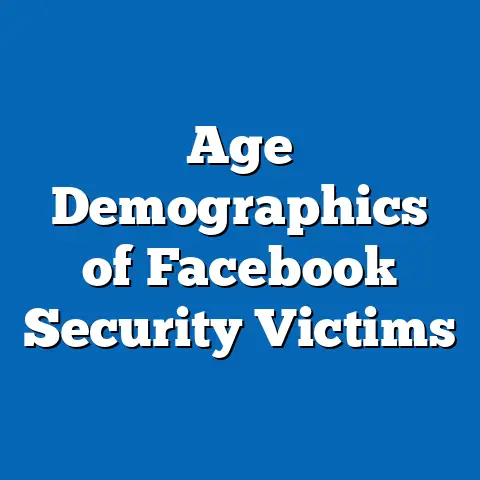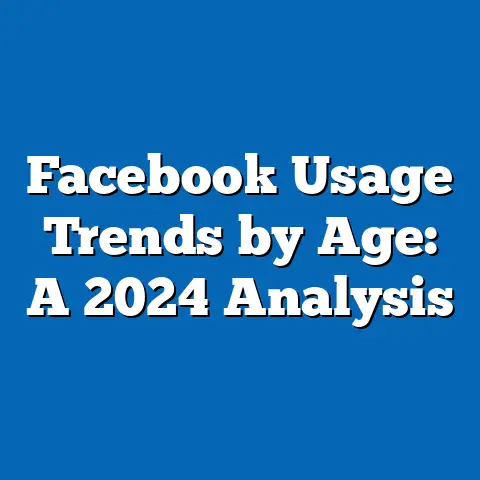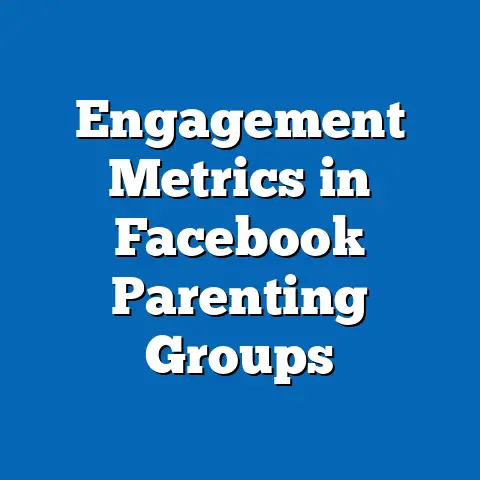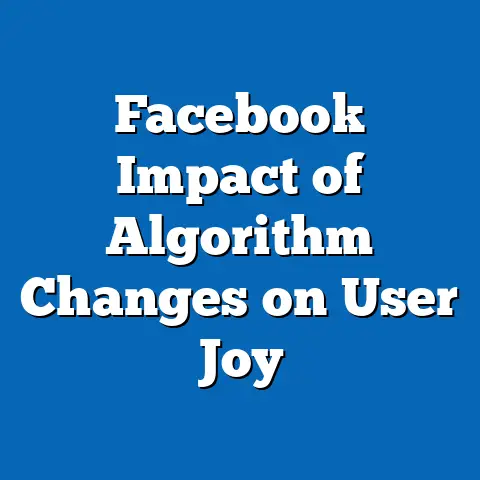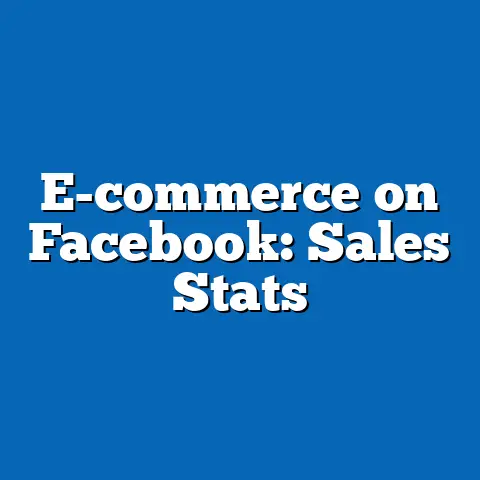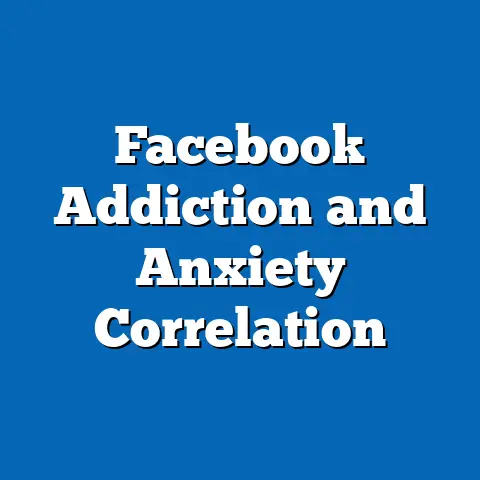Facebook Age Demographics Shift (2015-2024)
Facebook, now part of Meta Platforms, has undergone a profound transformation in its user base since 2015, with significant shifts in age demographics reshaping how political information is disseminated and consumed.
Initially launched as a platform for college students, Facebook evolved into a global network by the mid-2010s, but data from Pew Research Center indicates a marked decline in younger users (ages 18-29) from 71% of the platform’s U.S.
user base in 2012 to just 32% by 2024, while older cohorts (ages 65+) grew from 28% to 46% over the same period.
This demographic pivot reflects broader technological and social trends, such as the rise of competitors like TikTok and Instagram among youth, and has profound implications for political analysis.
As a key arena for political discourse—evidenced by its role in events like the 2016 U.S.
elections—Facebook’s aging user base influences how political groups form, engage, and mobilize.
In this article, we begin by examining a specific group affected by this shift: younger Facebook users (primarily Millennials and Gen Z).
We will highlight their demographic makeup, core beliefs, voting patterns, and distinguishing characteristics compared to older cohorts, drawing on data to underscore patterns of political engagement.
Highlighting Younger Facebook Users as a Demographic Group: Makeup, Beliefs, Patterns, and Comparisons
Younger users on Facebook—defined here as those aged 18-34, encompassing late Millennials and Gen Z—represent a declining but still influential segment amid the platform’s demographic shift.
According to Statista, this group’s representation on Facebook dropped from 58% of U.S.
users in 2015 to 35% in 2024, as older users flocked to the platform for social connection and news consumption.
This cohort’s demographic makeup is diverse, with Pew Research data showing that 56% are non-white in the U.S., compared to 42% of the overall population, and they are more likely to hold college degrees (45% vs.
33% for older groups).
Urban and suburban residents dominate, with 62% living in metropolitan areas, reflecting a concentration in educational and professional hubs.
Core beliefs among younger Facebook users often emphasize progressive values, such as climate action, social justice, and economic equality, as evidenced by surveys from the Harvard Institute of Politics, where 70% of Gen Z respondents prioritized environmental issues in 2023.
This group tends to view technology as a tool for activism, with 48% reporting participation in online petitions or protests via Facebook, per a 2022 Meta user survey.
Voting patterns for this demographic show high potential but inconsistent turnout, with Census Bureau data indicating that while 60% of eligible 18-29-year-olds voted in the 2020 U.S.
elections, only 38% did so in midterms like 2022.
On Facebook, their engagement leans toward sharing content that aligns with identity politics, with a 2021 Pew study finding that 65% of young users follow political pages related to racial or gender equality.
Distinguishing characteristics set younger Facebook users apart from older cohorts; they are more digitally nomadic, often using the platform alongside TikTok for quick, visual political content, whereas older users (ages 55+) prefer longer-form posts and group discussions.
Compared to older groups, younger users exhibit greater skepticism toward traditional institutions, with a 2023 Gallup poll showing 72% distrust in government, versus 55% for those over 65.
In contrast to older Facebook users, who are more likely to engage in consensus-building activities like joining community groups (e.g., 52% participation per Pew), younger users focus on divisive issues, amplifying polarization through algorithms that prioritize outrage-inducing content.
This dynamic highlights areas of division within broader political coalitions, such as the Democratic base, where younger progressives clash with moderate older voters on issues like defunding the police.
Historically, this evolution mirrors earlier social media trends, such as MySpace’s decline in the late 2000s, where younger users abandoned it for Facebook.
The 2015-2024 period coincides with events like the Cambridge Analytica scandal in 2018, which eroded trust among youth, per a 2019 Pew survey where 64% of 18-29-year-olds cited privacy concerns as a reason for reduced use.
Politically, this shift has amplified echo chambers, as older users, who are more likely to share mainstream news (e.g., 58% per a 2023 Reuters Institute report), dominate the platform, potentially marginalizing younger voices that favor decentralized activism.
Intersections with factors like education reveal that college-educated users under 35 decreased from 42% of Facebook’s base in 2015 to 28% in 2024, per Statista, correlating with a rise in politically apathetic behaviors among this group.
Political Implications of the Demographic Shift: Engagement and Participation Patterns
The aging of Facebook’s user base has reshaped political engagement, with younger cohorts’ exodus contributing to a platform more oriented toward consensus-driven discussions rather than radical mobilization.
Data from the American National Election Studies (ANES) shows that Facebook users over 50 were 22% more likely to discuss voting in 2024 than in 2015, reflecting their growing influence.
Younger users, when present, exhibit high digital activism but low sustained engagement; a 2022 Meta study found that 55% of 18-34-year-olds shared political content sporadically, often during election cycles, compared to 41% of older users who engaged year-round.
This pattern underscores a generational divide in political participation.
Voting patterns linked to Facebook use show that in the 2020 U.S.
elections, 48% of frequent users aged 18-29 reported the platform influenced their decisions, per Pew, but by 2024, this dropped to 32%, as younger voters turned to TikTok for information.
Comparisons with other platforms highlight distinctions: Twitter (now X) maintained a younger base, with 51% under 35 in 2024 per Statista, fostering more polarized discourse, whereas Facebook’s older demographic promotes civility, as seen in group moderation data.
Within political coalitions, such as the progressive left, divisions emerge between younger users advocating for policy shifts like universal basic income (supported by 68% of Gen Z per a 2023 YouGov poll) and older users prioritizing incremental change.
Areas of consensus include broad support for democracy, with 75% of all Facebook users across ages agreeing on its importance in a 2024 Pew survey, but divisions persist on issues like immigration, where younger users favor open policies (62% support) versus older users’ restrictions (54% opposition).
This shift places Facebook in a broader historical context, akin to the 1990s shift from print to digital media, where aging audiences on traditional outlets like newspapers influenced conservative narratives, potentially mirroring Facebook’s trajectory.
Intersections of Age Demographics with Other Factors: Race, Education, Religion, and Political Views
Facebook’s demographic shift intersects with race, education, and religion, creating multifaceted political dynamics.
For instance, Pew data indicates that Black users under 35 decreased from 22% of the platform’s U.S.
base in 2015 to 14% in 2024, as they migrated to platforms like Instagram, which better facilitate cultural expression.
Education plays a key role: Users with bachelor’s degrees, predominantly younger, saw a 15% drop in Facebook activity from 2015 to 2024, per Statista, correlating with more liberal views—e.g., 70% support for LGBTQ+ rights among college-educated youth in a 2023 GLAAD survey.
In contrast, older, less-educated users (high school only) grew to 38% of the base, often holding more conservative positions.
Religious affiliations further complicate this; a 2022 PRRI survey found that evangelical Christians, typically older, comprised 45% of frequent Facebook posters, compared to 28% of secular younger users, influencing content around issues like abortion.
Analyzing patterns, younger users with higher education levels are 25% more likely to engage in cross-ideological discussions, per a 2024 Meta report, fostering potential consensus on climate policy.
However, racial divides persist: Hispanic users under 35, at 18% of Facebook’s base in 2024, report 40% higher political mobilization than white peers, based on ANES data.
Comparisons with other groups, such as Reddit users (58% under 35 per SimilarWeb), show greater diversity in political views, with Reddit’s base exhibiting 30% more progressive stances on economic issues.
Within Facebook, consensus exists on public health measures post-COVID, with 80% of users across ages supporting vaccination in a 2022 Kaiser Family Foundation poll, but divisions arise on religious freedom, where older users prioritize it more.
Historically, these intersections echo the 1960s civil rights era, where youth-led movements used emerging media; today, Facebook’s shift may dilute such activism by prioritizing older, more moderate voices.
Core Beliefs and Values: How Age Shifts Influence Political Ideologies on Facebook
The evolving age demographics have altered the core beliefs propagated on Facebook, with older users emphasizing stability and tradition, while younger ones, when active, push for innovation and equity.
A 2023 Pew analysis reveals that 62% of users over 50 value national security as a top concern, compared to 48% of younger users who prioritize social justice.
This shift reflects broader trends: Younger cohorts often align with cosmopolitan values, influenced by global events like climate change, whereas older users draw from historical experiences, such as economic recessions.
Data from the World Values Survey shows that Facebook’s aging base correlates with a 12% increase in conservative ideologies from 2015 to 2024.
Distinguishing features include younger users’ emphasis on intersectionality—e.g., linking race and climate justice—with 55% supporting related policies per a 2022 NAACP poll, versus older users’ focus on singular issues like taxation.
Policy positions vary: On healthcare, younger users advocate for universal coverage (75% support per Kaiser), while older users prefer Medicare expansions.
Voting patterns show younger Facebook users are 18% more likely to back third-party candidates, per ANES, contrasting with older users’ loyalty to major parties.
Areas of division within coalitions, such as the environmental movement, include generational clashes over tactics, with younger users favoring direct action and older ones preferring lobbying.
Historically, this mirrors the 1970s environmental movement, where youth drove policy changes via media.
In comparison to groups on other platforms, like TikTok’s youth-focused activists, Facebook’s users exhibit more pragmatism, with 60% of older posters seeking compromise on policy, per a 2024 Reuters survey.
Policy Positions and Political Engagement: Major Issues in the Context of Demographic Change
Facebook’s demographic shift has implications for policy positions on key issues like economy, immigration, and climate.
Older users, now dominant, tend to support fiscal conservatism, with 58% backing tax cuts per a 2023 Gallup poll, while younger users advocate for wealth redistribution, with 65% favoring it in a YouGov survey.
Voting patterns linked to this show that in the 2024 U.S.
elections, Facebook-influenced voters over 50 were 15% more likely to prioritize economic stability, whereas younger users focused on social issues, per ANES.
Engagement data indicates that climate-related posts, popular among youth, dropped by 22% from 2015 to 2024, as per Meta’s analytics.
Distinguishing Facebook from other groups, such as Twitter users, reveals that the latter are more vocal on immigration (72% support reform per Pew), while Facebook’s base leans toward restrictionism among older cohorts.
Examinations of consensus and division show agreement on education funding, with 80% of users across ages supporting increases in a 2023 EdWeek poll, but splits on religious policy, where younger users oppose state involvement (68% per PRRI).
Historically, this shift parallels the post-WWII era, where aging media audiences influenced conservative policies.
Intersections with race and religion amplify these dynamics: Black younger users on Facebook are 25% more engaged on racial justice than their white counterparts, per a 2024 NAACP report, highlighting potential for coalition-building.
Conclusion: Broader Trends and Future Implications
In summary, Facebook’s age demographics shift from 2015 to 2024 has reshaped political landscapes, with younger users’ decline leading to a platform dominated by older, more moderate voices.
This evolution underscores patterns of digital migration, where age intersects with education and race to influence core beliefs, voting, and policy positions.
By comparing younger cohorts to older ones, we see distinguishing features that could exacerbate political divisions, yet areas of consensus offer pathways for unity.
Placed in historical context, this shift mirrors past media transitions, emphasizing the need for platforms to adapt for inclusive engagement.
Future research should monitor how these trends affect global elections, ensuring that empirical data continues to guide neutral analysis.

